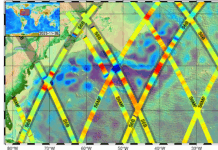Comprehensive Review on Nigeria’s Cancer Care Landscape
The imPACT review has been conducted to assess the current status of cancer care in Nigeria, with the aim of establishing a foundational analysis. This evaluation is crucial to aid Nigeria in forming strategic partnerships that can enhance cancer care facilities. This initiative also aligns with broader international cancer programs such as the International Atomic Energy Agency’s (IAEA) Rays of Hope, the World Health Organization’s (WHO) efforts towards breast and cervical cancer prevention, and the International Agency for Research on Cancer’s (IARC) cancer registry project. The review not only aids in evaluating the available national resources in oncology, pathology, and palliative care but also highlights areas that require capacity building.
Collaborative Efforts for Cancer Control
Walter Kazadi Mulombo, the WHO Country Representative in Nigeria, emphasized the collaborative efforts between the WHO, the Federal Ministry of Health and Social Welfare, and other partners. These efforts are streamlined under the sector-wide approach framework to foster synergies and boost coordination in cancer management across different levels. A significant focus is on embedding cancer prevention and early diagnosis measures within primary healthcare settings. This integration is pivotal for the early detection and management of cancer, which can significantly improve outcomes and survival rates.
IAEA’s Commitment to Enhancing Cancer Care
In a notable development, IAEA Director General Rafael Mariano Grossi visited Nigeria in May 2024, pledging increased support for cancer care through the IAEA’s Rays of Hope initiative. This initiative is designed to bolster radiotherapy services, including the introduction of brachytherapy, a form of internal radiation therapy used to treat certain types of cancer such as cervical and prostate cancers. Nigeria has shown a keen interest in expanding these services across all 36 states, which would significantly enhance the availability and accessibility of cancer treatment for its citizens.
The Significance of the imPACT Review
Mickel Edwerd, who serves as the Section Head in the IAEA Department of Technical Cooperation and was part of the review team, noted the timely nature of the imPACT Review. As Nigeria plans to broaden cancer care access under the framework of the IAEA’s Rays of Hope and its technical cooperation program, the findings from this review provide a critical starting point. The insights gained are expected to be instrumental in increasing access to cancer care for millions of Nigerians, potentially transforming the landscape of cancer treatment in the country.
Understanding Key Initiatives: Rays of Hope and More
The IAEA’s Rays of Hope initiative is part of a global effort to improve cancer care in low- and middle-income countries. It focuses on scaling up radiotherapy services, which are a cornerstone of effective cancer treatment. Radiotherapy uses high doses of radiation to kill cancer cells and shrink tumors. Brachytherapy, a specific form of radiotherapy mentioned in the review, involves placing radiation sources inside or next to the area requiring treatment. This method allows for a high dose of radiation in a small area, minimizing exposure to surrounding healthy tissues.
Similarly, WHO’s initiatives on breast and cervical cancer aim to reduce the burden of these diseases through preventive measures, early detection, and effective treatment strategies. The integration of these initiatives at the primary healthcare level ensures that even the most remote and underserved populations can access essential cancer care services.
Building National Capacity
The review underscores the importance of building national capacity in oncology, pathology, and palliative care. Oncology is the branch of medicine that deals with the prevention, diagnosis, and treatment of cancer. Pathology involves studying the causes and effects of disease, crucial for accurate diagnosis and treatment planning. Palliative care focuses on providing relief from the symptoms and stress of a serious illness, aiming to improve the quality of life for both patients and their families.
By identifying gaps and needs in these areas, the imPACT review acts as a catalyst for targeted interventions and resource allocation. Strengthening these aspects of healthcare is essential for creating a robust and sustainable cancer care system in Nigeria.
Good to Know: Global Cancer Efforts
Globally, cancer remains a leading cause of death, with millions of new cases diagnosed each year. International collaborations and initiatives play a crucial role in supporting countries like Nigeria to develop and implement effective cancer control strategies. Programs such as the IARC’s cancer registry initiative are vital for collecting and analyzing data on cancer incidence and survival, which informs policy-making and resource allocation.
Reactions and Reviews
The review and subsequent initiatives have been met with optimism from healthcare professionals and organizations. There is a consensus that these efforts could pave the way for significant improvements in cancer care in Nigeria. By working closely with international bodies and leveraging global expertise, Nigeria is poised to make substantial progress in its fight against cancer.
In conclusion, the imPACT review serves as a comprehensive assessment of Nigeria’s current cancer care capabilities and future needs. It lays the groundwork for strategic partnerships and initiatives that aim to enhance cancer treatment services across the country. With the support of international organizations like the IAEA and WHO, and the commitment of the Nigerian government, there is a promising path forward for improving cancer care in Nigeria.
For more Information, Refer to this article.


































